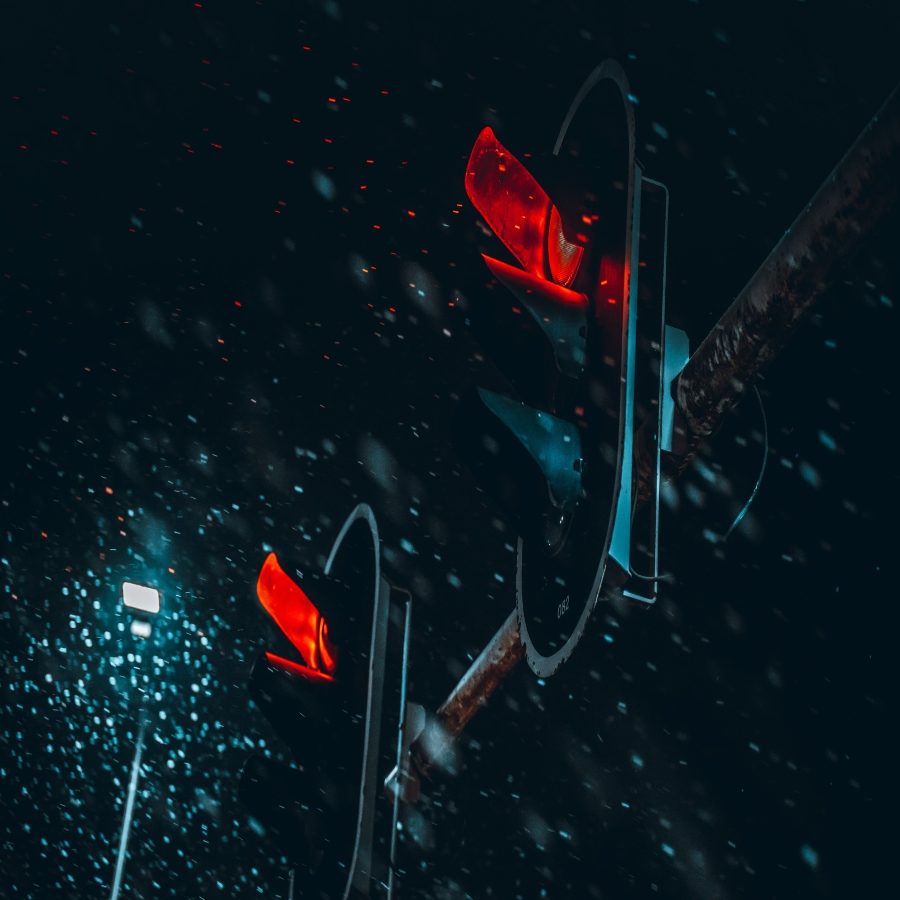
The Extractions
Agnes rocked us in her boat.
Cradled between waves, we were sleepy. She sang a song from her deepest throat:
A cup will fit perfectly into your mouth. A bowl and a spoon, too. A sun will release brilliance that you must not look at. But a moon will softly glow, will lift your eyes gently to her surface, will guide them to roam her pock-marked face. Agnes prepared us for the passage. She taught us to move through contractions. She taught us to open our fists and how to pull the abyss through our bodies to surface as tears. She summoned the strength of her great muscle to push us out.
The big animals roamed.
Agnes once told us that to kill them was to put a spear through our own bellies. We were mighty with weapons at our hips. Our women howled us to being, and it took us months to open our tight fists, and years longer to use our hands. After the big animals vanished, Agnes doused the cave fire and told us to inhale the smoke into our lungs. She told us to still our cough-wracked bodies on the floor. When the later ones came, they would remark that nowhere in the cave could they find our bones. Just the bones of the big animals covered in sediment with their charcoal outlines galloping the walls.
She woke to songbirds.
She didn’t know which ones; she had forgotten. But in memory, she saw their fins muscle to limbs and pull them to green shores. She saw them crawl through mosses and then gain speed through ferns and cycads as their keratin skin tubed to filaments. She watched them branch into feathers and lift from ancient ground. The birds in her trees sang a familiar song and she wondered what they knew about the end of things. Agnes thought of the empty feeders and the dry birdbaths in the yard. It was an early spring, thick with pollen, empty of bees. As Agnes listened to the singing, the sun fanned its first light from the other side of the mountains.
She drove through the signage asking her to want more, commanding an old hunger misunderstood by her new body.
She waited at stoplights, fiddled with her attention. She drove on. From her periphery, she saw trees blur— a green façade across clear-cut. She feared to drink from every oil-sheened body of water. She stopped here and there to collect a shell or stone or stick. She put them all in a pocket. Once home, she arranged the keepsakes in a circle on the table. She placed a bowl of filtered water in the center for an unknown thirst.
Agnes made a new doll for her daughter out of flesh and plastic.
She fed the doll plastic milk from her breast. She gave the doll tears from the ocean. Everything in the doll was fluid and salt. Membrane and tissue. Blood and plastic. The doll’s skin was another mouth. Her mouth was another ocean. Her food traveled the chain that linked to the sea. The weight of waves crushes plastic-like shells. Everything churned in the ocean is delivered to the shore. Agnes gave her daughter the doll. Her daughter kissed the doll’s cheek and asked her, How many grains of sand are there in the world?
Agnes’s branches came down.
What does she feel? wondered someone. Another did not wonder. Many did not wonder. She was too close to buildings; her roots were a threat to concrete slabs. That is how they built: on unwavering foundations. It was amazing the heights they had accomplished in a few decades. Agnes still had a couple of branches left at nightfall, and she let us weep into her roots through the dark. Morning brought her final dismemberment, and then she was gone in silence. We cried for days until the shimmering knowing of us released the last tear: a clear drop pulling light through its globe.
She said, In this darkness, be weak.
And, May you find weakness in your time of sorrow. And, I will give you weakness. She loosened our muscle cords until they were cobweb wisps. She took out our bones and piled them in a cairn by the river bend. She dissolved our tendons to mist. She disintegrated all of our cells with her molten breath. The wind blew us through the sky and pummeled us to the ground in downdrafts. Because we had no muscles, we met surfaces without resistance. Because our tendons were mist, we moved nothing. Because we had no bones, nothing broke in us.
The men told Agnes to describe the extraction.
She spoke with a quaver that rose from her waters swirling around absence. The men told her, Your body is now our home, and they moved in with their bright fires licking her walls. Agnes packed a suitcase with an assortment of worn shells and broken mollusks and a woolen cap. She stitched leather boots around her transparent feet. She wandered in and out of canyons walled by shattered bone and cooled lava. She came to the cave dogs who surrounded her in musk, licked her homeless body clean. Agnes thatched broken stems on the cave floor and browned grasses in the strong sun outside until their seeds came loose in the breeze.
Kim Parko is home to a wilderness of the unseen and is at home in the same. She is the author of The Grotesque Child (Co-winner 2015 Tarpaulin Sky Press Book Prize) and Cure All (Caketrain Press, 2010). Recent poetry and fiction have appeared or are forthcoming in Denver Quarterly, Boston Review (2018 Poetry Prize), Terrain.org, Black Warrior Review, The Brooklyn Review, DIAGRAM, Salt Hill, and POETRY. She is a professor at the Institute of American Indian Arts.
Submit Your Stories
Always free. Always open. Professional rates.
